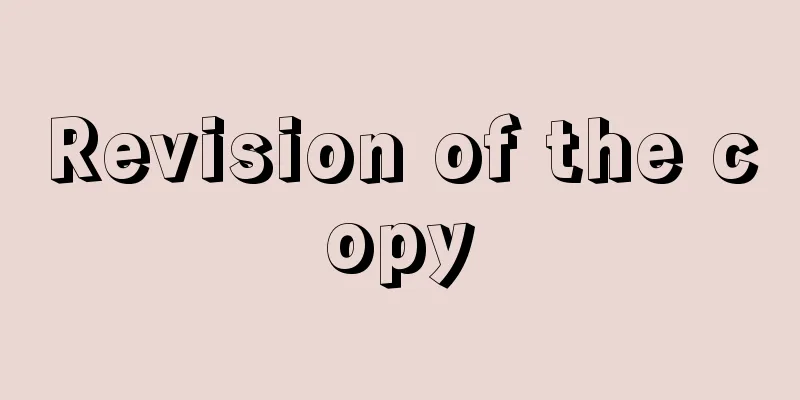Ice and Fire ChatGPT: Some people sell courses in huge quantities, while others are obsessed with lifelong learning

One day in AI is like ten years in the real world. ChatGPT has set off an AI craze around the world. Various large models have emerged, and AIGC is in full swing... Under the heat of the new era of AI, both entrepreneurs and investors are eager to move, as if they will miss billions of opportunities in the blink of an eye. At the same time, the panic argument that AI will replace humans is rampant. Translators, screenwriters, designers, customer service, etc. are the first to be affected, and ordinary workers are no exception. For a time, the double anxiety of missing the code to wealth and becoming a pawn of AI was superimposed, and “making up for lost time” and “making up for cognition” were imminent. It is no wonder that the first to make money before ChatGPT was the course seller. In April, a "ChatGPT Breakthrough Club" community with a fee of 198 yuan per year had nearly 1,000 members in less than 24 hours, and the number of members increased by about 1,000 people every day. A ChatGPT training course cost 279 yuan, and 10,000 people were recruited in 17 days, earning 2.79 million yuan... In this AI craze, various "teachers" claiming to be industry experts have quickly opened monetization courses and money-making courses. Some of them are even "experts" in the metaverse. Looking through the course content, a lot of information is pieced together and full of errors. It is no exaggeration to say that it is misleading. These contents lack a system and cannot even guarantee correctness, let alone really consider the users and meet their lifelong learning needs. After so many years, the tricks of paying for knowledge have not changed at all. They use hot topics, take advantage of information gaps, take advantage of people's anxiety about unknown areas, and use the idea of creating hot products to make money. But the problem is that if we don’t do this, either the cost of organizing high-quality information will be too high, or there will be no short-term stimulation and the customer base will not be expanded, resulting in too low income, and knowledge will become a "negative" expense. The contradiction is there. On the one hand, the wheel of time is rolling forward, and people's demand for knowledge about new technologies and new things cannot be met in a timely, correct and systematic manner. On the other hand, the providers of knowledge services need clear interests. Is there a solution that can satisfy both? Can we still establish cognitive frameworks and continue to learn in this AI era where technology is changing rapidly? 01 Establishing system cognition of AILet’s move beyond learning AI and ChatGPT and recall how we became interested in, began to get in touch with, studied in depth, and finally understood and mastered the knowledge of a subject when we were in school. Take biology as an example. Biology is actually a very large subject. People have different interests in this subject. Some people like animals, some are curious about how genes mutate, some like plants, and some are curious about why pitcher plants can eat insects... But no matter what the starting point is, we all have curiosity about a field and are eager to find answers to our doubts through learning. With learning goals in mind, we explore further. However, as the exploration deepens, we will find that the answer to the question itself needs to be supported by more basic principles of general knowledge. If you want to understand why pitcher plants can eat insects, you must first understand the basic structure of the plant, what characteristics carnivorous plants have compared to ordinary plants, how these characteristics are formed, where digestive enzymes come from... At this time, the basic knowledge of biology is the foundation for understanding these problems. But the learning process doesn’t end when we find the answer to a specific question. You gradually discover that there are still many unsolved mysteries about carnivorous plants in the world. These mysteries will linger in your mind, and even if you don’t continue to “study” them, you will pay special attention to them when you suddenly see related explanations later. Like the learning process in any field, if we want to truly understand AI and ChatGPT, we need to "take the long view." I'm already curious: How can AI replace my job? What is ChatGPT that everyone is talking about? How can a few lines of text become a painting? Why can AI write creative novels? How can I use AI? So the next thing to do is to use curiosity as the entry point and gradually go deeper, first understand the basic principles and the process of technological evolution, have the knowledge reserves to discuss application problems, and then go further to the application level to explore the answers to the problems. Last month, an investor friend complained to me that she was about to lose her job. She went to a closed-door meeting related to large-scale model venture capital. The picture was like this: the first speaker first put forward a point of view - the first step to achieve the controllable development of large language models (LLM) is to find the underlying logic that explains the complex reasoning ability of LLM behind ChatGPT. And the following entrepreneurs also shared their projects one after another. Some are easy to understand, such as AI resume modification and AI design, and some are more impressive, such as AI data asset management and AI+human health... Her embarrassment was the same as that of most people. Since she had no systematic training in the field of AI before, she was forced to do it without any preparation. She could not recognize the real thing, and she could not recognize the scammers either. She had to record the whole thing, but when the shorthand came out, she didn't know where to start. So when she saw that Get launched an AI theme month event, she felt relieved - 6 online courses, combined with more than 20 themed live broadcasts, systematically built a basic framework for understanding AI. Although these courses cannot make people make money immediately, nor can they bring people comfort like chicken soup for the soul, they follow the basic logic of people forming a systematic understanding of a field. Physicist Wan Weigang's AI frontier course serves as an outline from cognition to operational logic and then to mainstream usage. After mastering the basic logic, you can understand the application and know the reason. Kuaidao Qingyi's AI writing, Liu Fei's AI painting, Zhuoke's AI efficient learning, and Ma Yu's AI PPT, these four courses disassemble specific practical scenarios from different application perspectives. In addition, the cutting-edge course by Professor Wu Jun, a computer science Ph.D. from Johns Hopkins University, computer scientist, and Silicon Valley investor, uses 12 topics to deeply analyze ChatGPT, answering questions that people are concerned about, such as where are the limits of ChatGPT's capabilities, where are its defects, and who it can replace, further consolidating the knowledge framework for understanding GPT and bringing inspiration. The idea behind the knowledge service of "Get" is not to design a hit course, but to establish a knowledge system. In addition, there are more than 20 live broadcasts to understand AI and GPT from different perspectives in multiple dimensions. For example, the six views on ChatGPT by Zhou Hongyi, the founder of 360 Group, were impressive. Why did Web3.0 and the metaverse become unpopular after GPT came out? What breakthrough did GPT make? What impact does it have on ordinary people? What are the four unexplainable phenomena? How great are the risks of cyber attacks and data leaks? The 360 big model is entering an accelerated landing period. The content shared by such a person in the wave is undoubtedly the most cutting-edge, accurate, and more valuable for reference. But unfortunately, such systematic content is actually difficult to "explode". The most profitable courses on the market are either the "Excel Method" that produces immediate results, or the anxiety-oriented "How to Control Your Husband's Money" or "How to Make 1 Million by the Age of 30". It would be difficult to stick to a systematic course like "Get" without a little emotional support. The AI industry has a high threshold and the audience is not too wide. The actual implementation of AI is too far away from ordinary people. Although everyone is keen to discuss whether GPT will make us unemployed, objectively speaking, that day is not as close as we think. And AI technology is not a field that is easy to use and practical like cooking and gardening. Compared with "199 Let You Make Money with GPT Immediately", the establishment of cognition and system thinking in the field of AI is more important. 02 The Dilemma of Knowledge ServicesPerhaps you still remember the course selling slogan "If we don't train you, we will train your competitors." To be honest, compared with the ChatGPT crash courses on the market, this series of AI content from Get is not eye-catching. It is neither a crash course nor does it amplify anxiety - this may be the dilemma of knowledge service companies: to pursue high returns and make big moves, or to do things steadily but quietly. Facing the dilemma between revenue and user value is also the choice of Get. After years of development, Get has become a platform ecosystem. Selling hot products is tempting, but since it wants to be a friend of time, its values and behaviors are bound to be biased towards the long-term health of the ecosystem. There is no need to elaborate on the story of how Luo Zhenyu founded Luoji Siwei more than ten years ago. At that time, he took advantage of the development of the WeChat platform and videos to quickly accumulate a large number of fans, but at that time he could only be regarded as an "individual business owner" and "KOL". Like all bloggers, the biggest cost in pursuing the dissemination of content was Luo Zhenyu's own time and energy, and the ceiling was also Luo Zhenyu's own knowledge reserve. Later, Tian Suning, the founder of Netcom, enlightened Luo Zhenyu with the term "knowledge operator", and the Get APP was launched. More people with knowledge gathered around Luo Zhenyu, and a public account became a company. At that time, "Get" seemed to be more of a knowledge operator using the idea of e-commerce - there were more and more knowledge courses and more and more knowledge products. As of July 2018, the "Get" platform had incubated 82 columns and courses of various types and had 21.8 million knowledge consumers - this is like the SKU of e-commerce, the knowledge shelves are categorized, enriched, and segmented, gradually giving people the impression that whatever I want to learn, "Get" has it all. This will solve the problem of users being only interested in a single course and leaving after listening. When the platform can continuously produce good content, and good content can be fed back to users from time to time, and good content forms continuity, user loyalty will shift from project loyalty to platform loyalty, and from love for the project to love for the platform. Once this transfer is completed, the platform’s own position in content quality, reputation, and credibility will be established. According to Luo Zhenyu's recollection, the first stage of "Get" was to organize knowledge, and many economics and finance courses were released. The coordinate system of these courses was "listening to our classes is more useful than just reading books." But this process is also accompanied by challenges. On the one hand, the rapid rise of short videos has suddenly broken the one-way dissemination of knowledge, and everyone can be a teacher; on the other hand, there is the choice of "gaining". Human and material resources are limited. Which knowledge is most important to users? Which projects can balance economic benefits and user value? Soul-searching questions run through the fate of knowledge service providers, and Luo Zhenyu is well aware of this: "We know very clearly which income comes from traffic and which comes from reputation. Reputation and traffic cannot be equated. Sometimes, too much traffic can even damage reputation." "Knowledge products rely on reputation, not traffic." No wonder in addition to practical content such as workplace, economics, management, product thinking, nutrition, medical health, emotional psychology, etc., we can also see knowledge content that seems to be more theoretical analysis, such as "Fu Peirong's Western Philosophy Class", "Natural History for Children", "Wu Jun·Letter from Silicon Valley", and "Yang Lixin·200 Lectures on the Civil Code". From the selection of lecturers to the planning of knowledge content, the reputation of "Get" is everywhere. It is not difficult to understand why, during the GPT craze, "Get"'s courses are not about teaching you how to use GPT to make your first million in life, but returning to the true nature of the technical field to think about how to structure knowledge in order to be the best for users, easy to learn, and lifelong benefit. Interestingly, on Monday (May 1), the CEO of Chegg, a well-known online education company in the United States that specializes in providing homework answers, admitted in a conference call that ChatGPT was damaging the growth of its business and that users no longer needed to obtain relevant learning materials through Chegg. Subsequently, its stock price plummeted 49%, and a number of education companies in Europe and the United States also fell sharply. You see, if we just stay at the information gap itself, AI is already at the gate. What we need is not anxiety and scattered knowledge points, but a roadmap for system, thinking, and continuous improvement. The future has arrived. In the AI era, technology and information are iterating rapidly. It is really difficult to keep up with the pace by only looking at surface knowledge. In the past, learners faced isolated peaks of knowledge. With the help of artificial intelligence, these peaks may be flattened and turned into plains that learners can see at a glance. You no longer need to memorize by rote, but to systematically construct a knowledge structure, understand from multiple perspectives, and think dialectically. This may also be the key point that Get wants to convey in the process of its knowledge service, and this will also make Get truly a "friend of time." Author: He Wen, WeChat public account: Shen Xiang |
<<: Blind box of air tickets, exchange of accommodation, copying of Zibo, who is joining in the fun?
>>: Some thoughts for April 2023!
Recommend
How do I delete a product on Wish? How do I restore a product that was deleted by mistake?
With the rapid development of e-commerce, Wish, as...
What is going on with Amazon’s US logistics fee adjustments and discount plans?
Amazon US is one of many sites. There are actually...
Some knowledge that novices need to know about Amazon
When it comes to e-commerce, being a novice is not...
How long will Tianshui Malatang remain popular?
I believe everyone has eaten Malatang. Recently, T...
When does Amazon start withholding payments? When does it start deducting monthly rent?
Amazon is a well-known cross-border e-commerce pla...
What are the requirements for opening a store on Amazon? What should I pay attention to?
As cross-border e-commerce platforms continue to g...
How to quickly create a link on Pinduoduo in 7 days
How to quickly establish links within 7 days has b...
How is Wish Operations assessed? What is it like to be a Wish Operations Specialist?
In today's rapidly developing e-commerce indus...
Michelin restaurants sell poor person set menus. Is high-end dining still a good business?
Michelin restaurants have also started selling &qu...
Why did Shopee not receive any orders for a month? What are the reasons?
Every merchant who opens a store online hopes that...
How to write a new product promotion plan on Amazon? What are the tips?
There are more and more merchants opening stores o...
What are the international air freight logistics companies? Introduction to the eight major air freight logistics companies
With the continuous development of the market, mor...
How to join the Amazon platform? Process introduction
Among many cross-border e-commerce platforms, Amaz...
AI investment makes entrepreneurs sad
As AI tools become more popular, how to attract an...
It is difficult to attract new customers, difficult to promote activation, and difficult to convert. How can we solve the dilemma facing the Internet service industry?
The Internet service industry seems to be in a dil...









